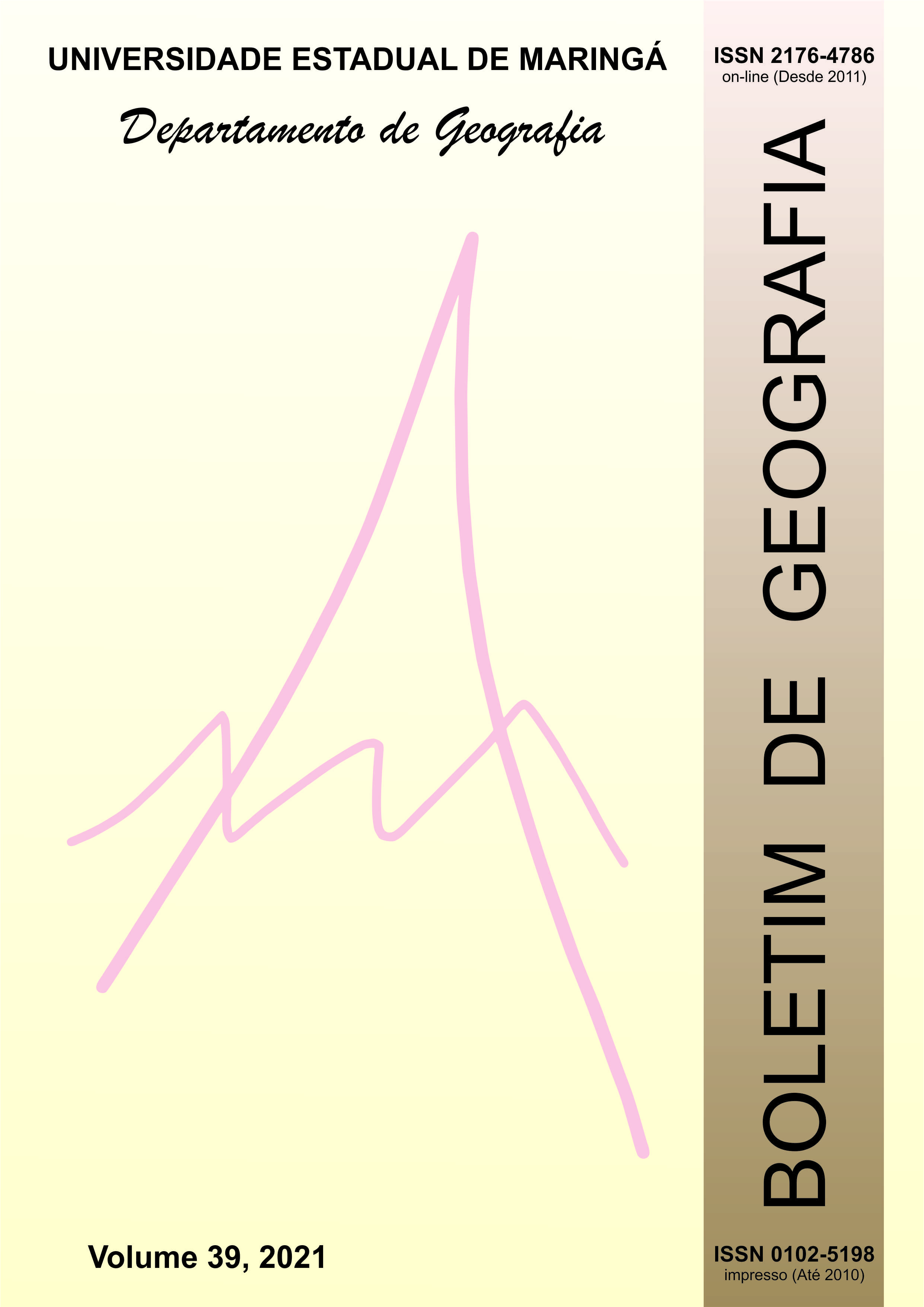What is not geography?
Abstract
In order to conceive “What is not geography?”, a work of nadological epistemology of geography was weaved, with the purpose of sculpting the geographical non-being. For this, we sought to be embolder in the philosophy of nothingness through Parmenides, Melisso, Gorgias, Plato, Al-Fārābī and Sartre. These authors open the way to thinking in various ways the geographical nothingness, serving, especially, to identify that there is a diversity of horizons to answer the question situated. Thus, we aimed, in addition to conceiving possible paths, a review about what is understood about what is not geography. With the historiographic literature review, three basic formulations were found: “geography is not other sciences”, “geography is not unanimous knowledge” and “geography is not purely academic”. The first gives geography a status of science by itself, predicate in its various areas of activity, being a polarization – in the face of pure interaction converging on the predicate phenomenon; the second points out that depending on the possible currents of thought, geography remains as an interaction to be polarized, including from philosophical lines; finally, the third indicates that geography is also phenomenic, present in education and in everyday life, being thought of in a depolarized in the facticity of the world. All these negative assertions allow us to understand that geography is a pure polarized interaction in predicates of areas and currents and depolarized on the horizon of experiences. Thus, the geographical non-being was groped in a journey of opening possibilities to the meanings of what is not geography and of knowing them more deeply.
Downloads
Copyright (c) 2021 Boletim de Geografia

This work is licensed under a Creative Commons Attribution 4.0 International License.
O Boletim de Geografia está licenciado através da Creative Commons Atribuição 4.0 Internacional (CC BY 4.0).
Autores que realizam submissões ao Boletim de Geografia concordam com os sequintes termos:
- Autores retêm todos os direitos autorais e concedem à Revista direitos exclusivos da primeira publicação, com o artigo licenciado sob os termos da Creative Commons Atribuição 4.0 Internacional (CC BY 4.0).
- Após a publicação, fica permitido ao autor a republicação em qualquer outros meios de divulgação, desde que mencionada a fonte original.












